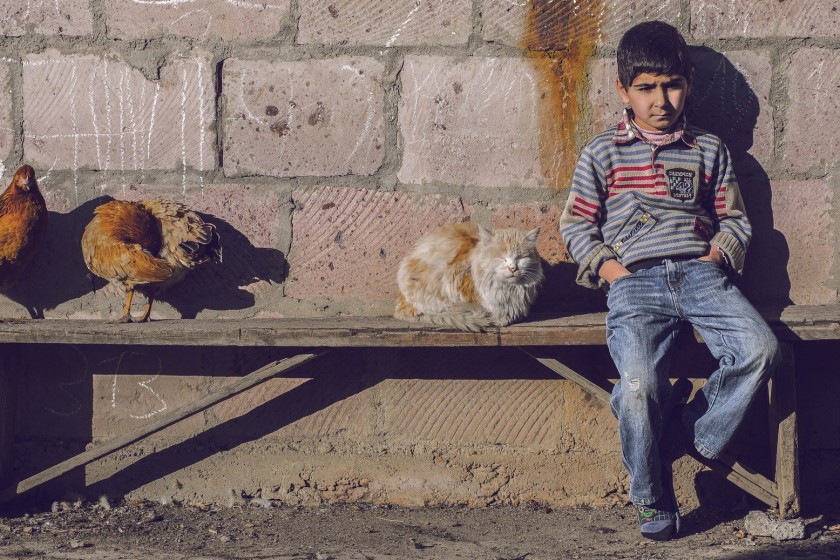
Samvel Konsoulyan of Lori: Foraging the Forest to Feed His 5 Kids
Marine Martirosyan, David Banuchyan
We walk down the icy and, in places, muddy road in the village of Shahoumyan towards the home of the Konsoulyan family.
Samvel, the family’s father, escorts us to his house in this village located in Armenia’s northern Lori Province.
When he speaks to us, Samvel often hangs his head. His answers to our questions are short.
Earlier, when we visited the village municipality wanting to know about the local socio-economic situation, we were told that there are many families in need but that the problem was of their own making. Officials gave us the name of a few families facing hard times. The Konsoulyan family was one. We were told that they are hard workers.
The forest provides for the 5 children
The village was freezing but Samvel only wore a thin jacket. He said he was used to it. Samvel has no permanent job and sustains the family by gathering what he can from the local forest. “If it wasn’t for the forest, I don’t know what would become of us,” he says. Chickens run to and fro as we enter the yard of the house.
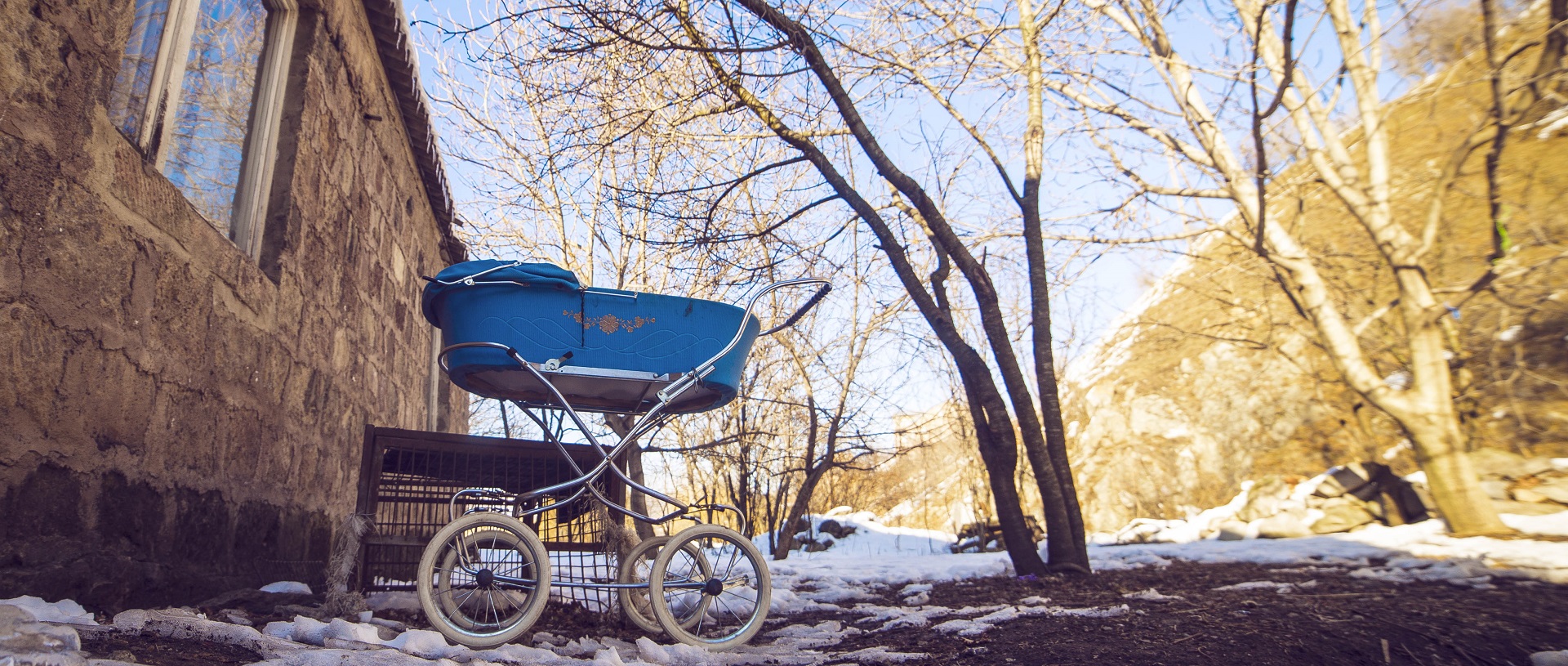
Winter is the worst season for the family. He can only gather wood from the forest. Getting up every morning at 4:30, Samvel walks two hours to reach the forest. His wife Marineh sometimes urges him to stay home. There are wild beasts aplenty, she cautions. Samvel says that if he listens to her, the children would go hungry. At least he brings something home, he says.
During the summer, Samvel gathers mushrooms, herbs and berries. Evenings are the time when the family prepares what has been foraged for sale in the Vanadzor market. Samvel is forced to sell the goods for next to nothing. They need the money to feed their five children.

The family raises fifteen chickens and a calf. Samvel purchased the calf two years ago after pawning his wife’s wedding ring. “I run all day in front of the calf and gather the grass by hand,” says Samvel. The couple request that we don’t take photograph them in the yard. They’re embarrassed as to what the neighbors might think. The chickens try to get into the house and the children quickly shoo them out.
Getting by on 51,000 drams
The Konsoulyan house is located at the forest’s border. Samvel says the house is unfit for living. It’s falling apart. The family has been living in the house, rent free, for the past seven years. It belongs to a neighbor. The family of seven barely squeezes into the two rooms.
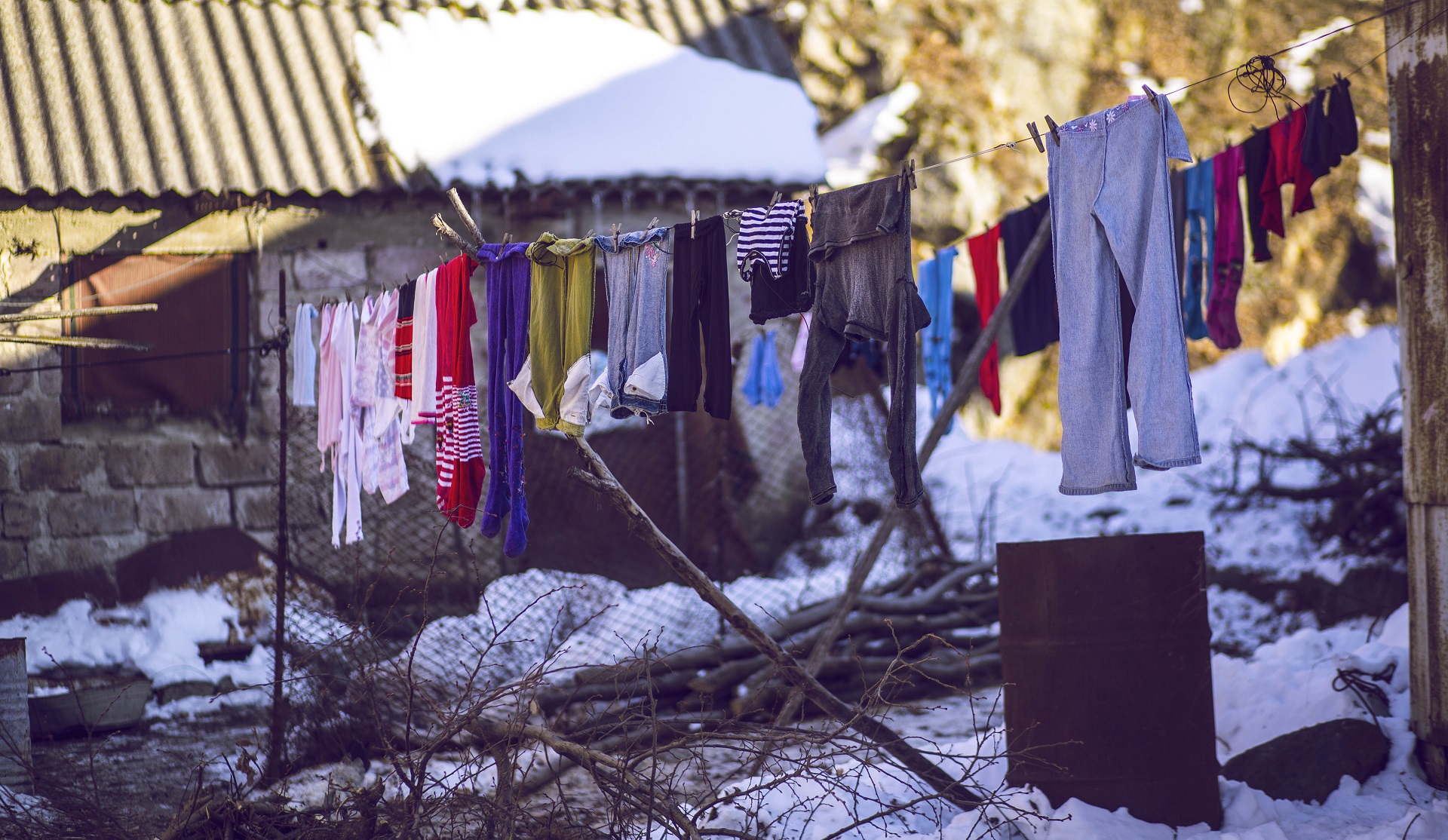
Samvel, 45, had a job at the Vanadzor shoe factory back in the 1990s. His father was a barber and Samvel learnt the trade from him. Samvel, who says he’s a jack of all trades, cuts the children’s hair and mends their shoes.
His wife, 35 year-old Marineh Aghekyan, tells us that they couldn’t but boots for the kids even though it’s winter.
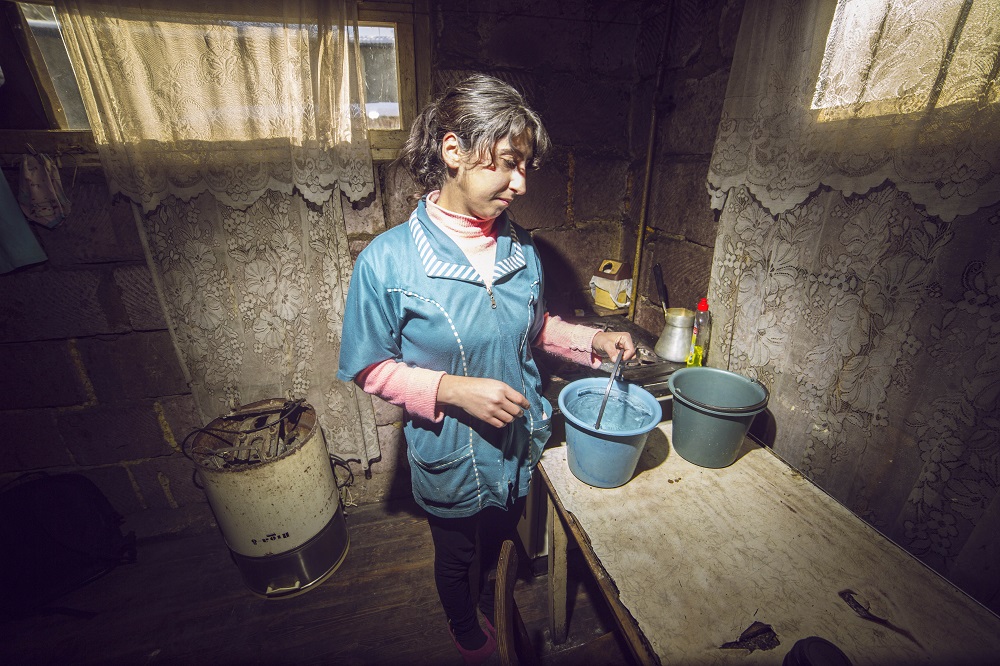
The family receives a monthly state allowance of 51,000 drams ($106) for the children. The couple says they make do with the amount.
Furniture in the house belongs to the landlord, as well as the cat that goes and comes inside.
The eldest child, 15 year-old Tzaghkanoush listens to our conversation. The girl says she dreams of becoming an actress one day. Her 14 year-old sister Mariam tells us she wants to become a designer. No to be left out, 8 year-old Artour, chimes in, “And I will become a policeman.” The other two children, 4 year-old Aren and 2 and a half year-old Ovsanna, attentively look at their elder siblings.
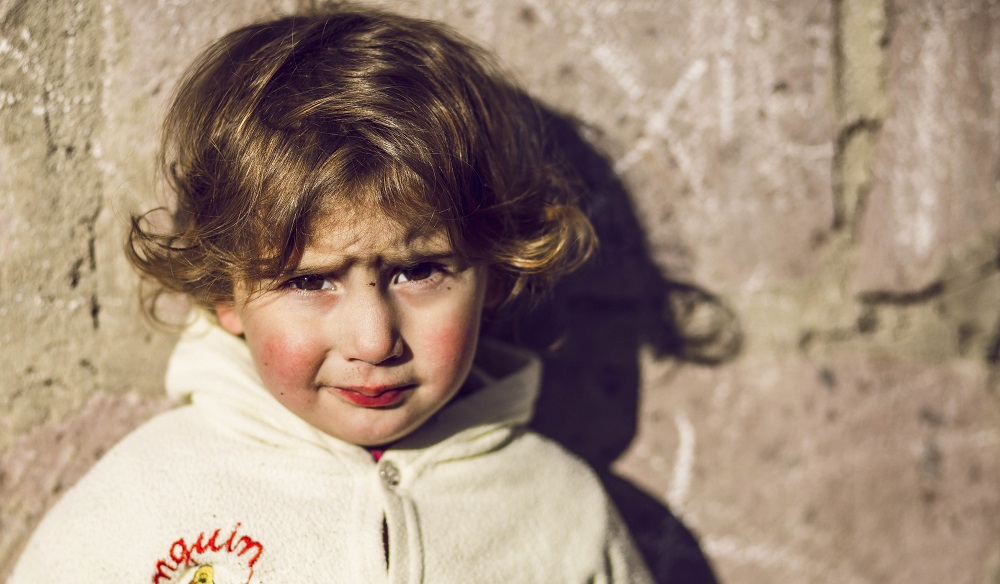
When the children go out to the yard, Samvel lets out a sigh. “It’s very hard. I’d say that if were another guy in my place, he would had left, would have fled. This irritation, lifestyle, can make a person leave. But I stay for my children. I save what I can on myself just to give them.”
“Today, I might not have bread to eat…”
The greatest treasure for Samvel and Marineh are their five children. They smile when saying this.
We work so that village folk don’t get the sense that we are living in difficulty. For example, today I might not have bread to eat. But I don’t show it because everything is good. Her sister lives in the village, but we haven’t yet shown her how we live. Why should we? So that they can say what kind of man is this that cannot maintain a household? I’ve been lucky. The children are resilient and not like other kids,” says the father, this time without smiling.
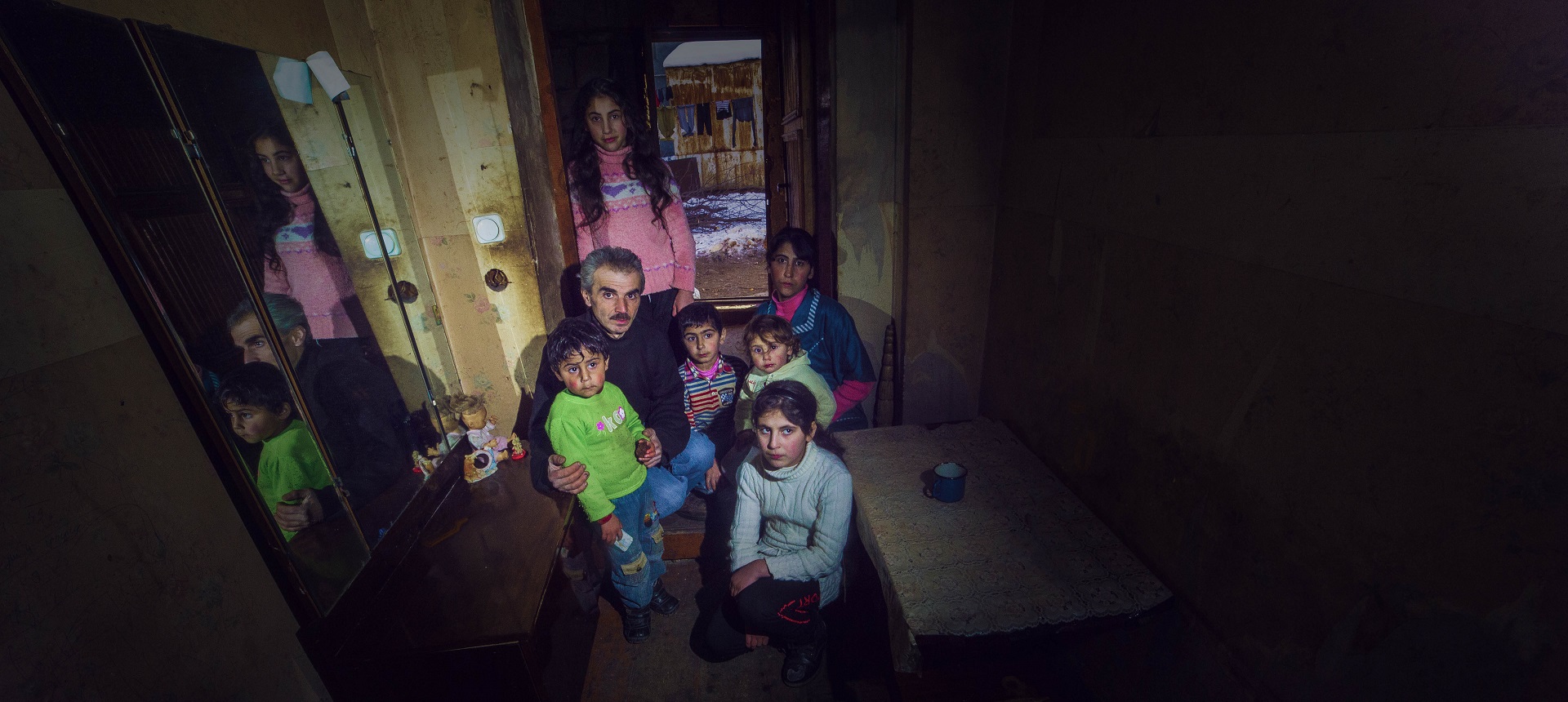
Samvel says that if anyone lends the family a helping hand, he would like to raise some livestock – pigs, goats, chickens. He says that in just two years the number of animals would skyrocket.
As the man of the house, Samvel says he is forced to describe the difficulties the family faces. His face gets flushed when he talks about it. He clasps his hands tightly. I remain silent. Samvel would like to work, but there are no jobs to be found in the winter. He can’t even find work as a basic security guard.
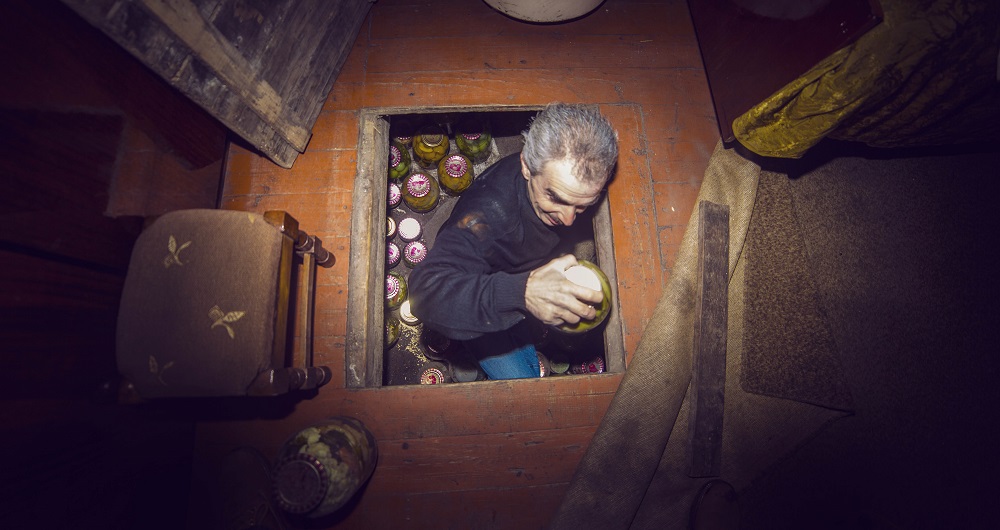
After our conversation, Samvel enters the adjoining room and shows us jars of forest foraged preserves.
Complementing his wife, he says she’s a good cook, bakes some marvelous deserts, and manages quite well with thread and needle.
“Please, let me open one of these jars. Have a taste,” says Samvel. We kindly decline the offer.
“At least let me open a jar of compote,” he responds.
 Videos
Videos Photos
Photos




Comments (1)
Write a comment